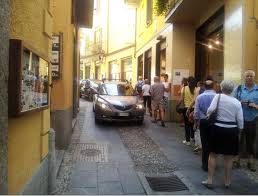Urban freight is responsible for almost a quarter of European cities’ CO2 emissions from urban transport, as well as 30 to 50 percent of particle pollution, nitric oxide and nitrogen dioxide emissions. Small and medium size cities, and especially tourist towns, often have particular freight challenges due to characteristics such as old road infrastructures, narrow streets, the presence of historical assets and higher risks to pedestrian safety.
Urban mobility
Improvement of logistics processes strongly depend on the overall mobility policy, particularly when it comes to delivery of goods and parcels but also for services to hotels like laundry collection and delivery. The cities of Elba, Funchal, Las Palmas, Limassol, Rethymno and Valletta, will develop “Sustainable Urban Logistic Plans” (SULPs) as an integrated part of general regional plans or Urban Sustainable Mobility Plan (SUMP).
Besides the SULP development, all living labs have started to design measures aiming, at a minimum, to increase the efficiency of the overall freight distribution process, around the concept of consolidation for managing goods delivery in small historic city centres. Further measures are planned, including the promotion of clean vehicles, clean fuels and eco-driving for last mile delivery. Rethymno and Limassol, which have many hotels and restaurants in their tourist areas, will work on collecting used cooking oils for the production of biofuel for local vehicle fleets.
In March 2017, the project organised its first “SULP-Methodology” webinar. The project will be used to develop the SULP as part of and in close collaboration with the SUMP development process. The compilation of SULP Baselines will be finalised during the summer of 2017 and the definition of the plans will be carried out in 2018.
Source: Civitas

